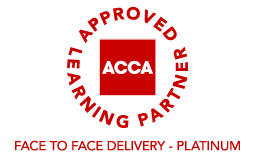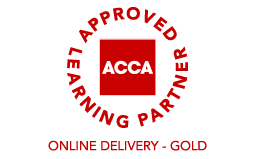As with most fields of expertise, credentials often serve as the cornerstone of professional advancement in the finance industry. Among these, the Chartered Financial Analyst (CFA) charter stands out, symbolizing one’s expertise, integrity, and commitment to the highest standards of ethical conduct.
If you’re looking to make the next big step in your finance career, or are curious to know about how to become a CFA charterholder and the benefits of becoming a CFA charterholder, then this blog post can help. Here, we answer common questions like: What is the CFA? What does it mean to be a CFA charterholder? How long does it take to get a CFA?
What Is the CFA? Understanding the CFA Charter
Before delving into the specifics of how the CFA charter can amplify your finance career, let’s first discuss what this esteemed credential entails. The CFA charter represents the pinnacle of achievement for finance professionals, showcasing a mastery of investment analysis, portfolio management, and ethical standards. Being an official CFA charterholder is not just about getting another title; CFA certification is a testament to your dedication to excellence in the field of finance.
To earn the CFA charter, candidates must navigate a rigorous journey that includes passing three levels of exams, accumulating relevant work experience, and committing to upholding the CFA Institute’s Code of Ethics and Standards of Professional Conduct. This comprehensive process ensures that CFA charterholders possess not only the knowledge but also the practical skills necessary to thrive in today’s competitive financial landscape.
Moreover, the global recognition bestowed upon the CFA charter underscores its significance in the finance industry worldwide. Whether you’re in New York, London, or Dubai, the CFA charter serves as a universal language of proficiency, opening doors to a myriad of career opportunities and signaling to employers your readiness to tackle complex financial challenges with aplomb.
The Benefits of Being a CFA Charterholder
So, why should aspiring finance professionals in the UAE (and beyond) aspire to attain the CFA charter? The reasons are manifold, each offering a compelling case for investing in this prestigious credential:
- Globally Recognized Qualification: In a cosmopolitan melting pot like the UAE, where talent converges from every corner of the globe, having a credential that transcends borders is invaluable. The CFA charter’s universal recognition ensures that your expertise is respected and sought after by employers and clients alike, whether you’re based in the Gulf Region, Toronto, Singapore, Sydney, Paris, or Shanghai.
- Enhanced Career Opportunities: The financial landscape in the UAE and the rest of the world is ripe with opportunities, from wealth management and investment banking to Islamic finance and fintech. By earning the CFA charter, you position yourself as a standout candidate in a competitive job market, equipped with the skills and knowledge to excel in diverse roles across the financial spectrum.
- Deeper Knowledge and Skills: The CFA curriculum covers a breadth of topics essential for success in finance, including economics, financial reporting and analysis, corporate finance, and portfolio management. By undertaking rigorous studies required to pass the exams, you not only expand your knowledge base but also hone critical thinking and analytical skills that are indispensable in today’s dynamic financial landscape.
- Networking Opportunities: Relationships are paramount in the finance field. The CFA charter gives you access to a vast network of like-minded professionals through local societies and global events hosted by the CFA Institute. Whether you’re seeking mentorship, career advice, or collaboration opportunities, the CFA community offers a supportive ecosystem for your professional growth.
How to Become a CFA Charterholder
Embarking on the journey to become a CFA charterholder begins with enrolling in the CFA Program. This process is straightforward but requires careful attention to deadlines and preparation.
- Registration Process and Deadlines: Candidates must enroll in a CFA course in a recognized or accredited establishment like Phoenix Financial Training. Pay close attention to registration deadlines, as missing them can result in your inability to register for the upcoming exam window.
- Study Resources and Preparation Tips: Once enrolled, candidates gain access to a wealth of study resources, including textbooks, practice exams, study guides, review courses, and online learning tools. Effective preparation often involves creating a study schedule, utilizing a variety of resources, and dedicating ample time to review and practice.
Passing the CFA Exams
The CFA Program consists of three levels of exams, each designed to test different aspects of a candidate’s knowledge and skills in finance.
- Overview of the Exam Structure and Format: The three levels of the CFA exam progressively increase in complexity, covering topics such as ethics, quantitative methods, economics, financial reporting and analysis, corporate finance, equity investments, fixed income, derivatives, alternative investments, and portfolio management. Level I focuses on basic knowledge and comprehension, while Level II delves deeper into application and analysis. Level III assesses a candidate’s ability to synthesize and apply their knowledge in real-world scenarios.
- Breakdown of Exam Topics and Weights: Each level of the CFA exam is weighted differently, with certain topics carrying more weight than others. For example, ethics and professional standards typically account for a significant portion of the exam, reflecting the importance of ethical conduct in the finance profession. Understanding the exam topic weights can help you prioritize your study efforts accordingly.
- Format of Exam Questions: The CFA exam features various question formats, including multiple-choice questions, item sets (also known as vignettes), and constructed response (essay) questions. Multiple-choice questions require candidates to select the correct answer from a list of choices, while item sets present a series of questions based on a common scenario or set of data. Constructed response questions require candidates to formulate written responses to prompts or case studies.
- Strategies for Exam Preparation and Success: Effective exam preparation involves a combination of thorough review, practice, and time management. Candidates should familiarize themselves with the exam format and question types, practice under timed conditions, and focus on mastering the core concepts outlined in the CFA Institute’s curriculum. Additionally, participating in study groups or review courses can provide you with valuable insights and support from your peers and instructors.
Fulfilling Work Experience Requirements
In addition to passing the exams, candidates must meet certain work experience requirements to obtain the CFA charter.
- Types of Qualifying Work Experience: Qualifying work experience for the CFA charter typically entails 4,000 hours acquired within a minimum of 36 months, and involves direct involvement in the investment decision-making process or the supervision of such activities. This may include roles such as financial analysis, portfolio management, investment research, or investment consulting. The key is demonstrating relevant experience that aligns with the CFA Institute’s guidelines and standards.
- Documentation and Verification Process: Candidates must provide details of their work experience, including 2-3 professional references during the membership application process. The CFA Institute carefully reviews each candidate’s work experience to ensure compliance with the eligibility requirements.
By following these steps and committing to the rigorous process outlined by the CFA Institute, aspiring finance professionals can embark on the path to becoming CFA charterholders, equipped with the knowledge, skills, and experience to excel in the dynamic world of finance.
Take the Next Step to Becoming a CFA Charterholder
If you’re looking to obtain a CFA charter in the UAE or wherever you’re located, Phoenix Financial Training can help.
We offer a range of online financial training programs, including the CFA course.
By investing in your education, expanding your skill set, and leveraging the global prestige of the CFA charter, you position yourself for success in the world of finance. So, seize the opportunity, embark on this transformative journey, and let the CFA charter be your passport to a fulfilling and prosperous career in the UAE and beyond.
Get in touch today!



